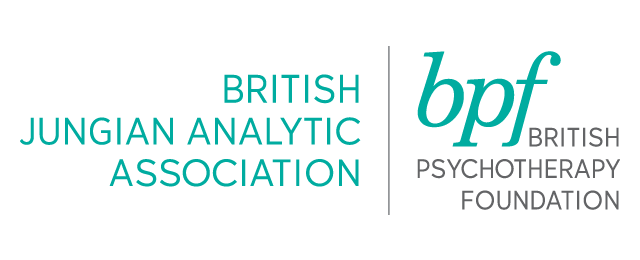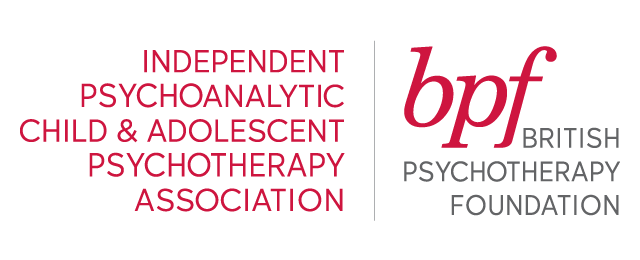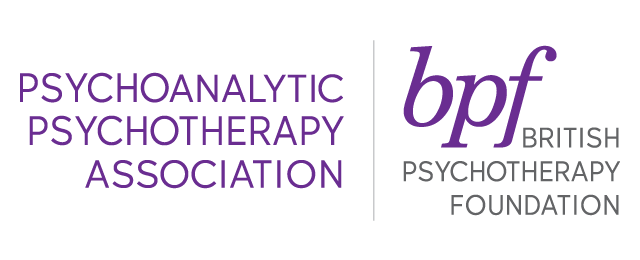
Associations
The British Psychotherapy Foundation (bpf) was formed in April 2013 from the merger of the British Association of Psychotherapists, the London Centre for Psychotherapy and the Lincoln Clinic and Centre for Psychotherapy, each with a history of service to patients, trainees and members.
We take the very best from these traditions to advance our vision of a society in which psychotherapy is available to everyone who needs it to promote their emotional well-being and mental health.
BJAA
British Jungian Analytic Association

The British Jungian Analytic Association (BJAA), one of the 3 associations within the bpf, is made up of well over one hundred Jungian analysts and psychotherapists. We work individually with people from all backgrounds and areas of society and as well as assist in finding a therapist.
The BJAA also offers a well established, highly respected Jungian Analytic Training for working with adults, leading to membership of the BJAA of the bpf and the International Association for Analytical Psychology (IAAP), and registration with the British Psychoanalytic Council (BPC). A Jungian Modified Entry Scheme is available for people who already have a significant clinical qualification. In addition an MSc in the Psychodynamics of Human Development is offered in conjunction with Birkbeck College, University of London. It is also possible to train as a Child & Adolescent Psychotherapist by taking the Jungian Training pathway with our sister bpf association, the IPCAPA (Independent Psychoanalytic Child and Adolescent Psychotherapy Association).
Jungian analysts
All BJAA Jungian analysts are psychotherapists whose extensive analytic training equips them to work deeply with individuals, helping to unlock the symbolic potential that can bring about healing and renewal. As Jungian analysts, we embrace the spirit of Jung’s work especially in terms of the creative far-reaching nature of the unconscious, the importance of discovering a symptom’s meaning and purpose and an appreciation of the psyche’s inherent drive towards wholeness, where one can potentially be freed up to become one’s true self.
All BJAA Jungian analysts are registered with the BPC (British Psychoanalytic Council) and the IAAP (International Association for Analytical Psychology).
IPCAPA
Independent psychoanalytic child and adolescent psychotherapy association

The Independent Psychoanalytic Child and Adolescent Psychotherapy Association (IPCAPA) is one of the 3 professional and training associations within The British Psychotherapy Foundation (bpf). Within the bpf, IPCAPA is the single association that focuses on the field of psychotherapy with children and their families.
The child psychotherapy training has been running for over 30 years. It was first established at the British Association of Psychotherapists by Anne Hurry and colleagues in 1982 when it opened with four trainees. The training is now open to as much as 35 trainees a year across London and Home Counties. 100 trainees have trained at the bpf since our humble beginnings (many now in Consultant/ Head of Service posts in NHS).
Our name
Our name, IPCAPA, developed out of a debate and lively discussion within the former BAP Child and Adolescent Psychotherapy section, emphasises our independent theoretical tradition of psychoanalytic psychotherapy. We are the only training school, nationally; to deliver a child and adolescent psychoanalytic psychotherapy training in the independent tradition of psychoanalytic psychotherapy and we are proud that the new name, IPCAPA, holds this firmly.
Our aims
IPCAPA aims is both to continue to deliver the child psychotherapy training in the Independent tradition (inclusive of the Jungian pathway), and harness and foster the energy and interests of the qualified membership into a lively post-graduate life.
Train with IPCAPA
IPCAPA currently delivers a professional doctoral level training in Child and Adolescent Psychoanalytic Psychotherapy (accredited by the Association of Child Psychotherapists), as well as a pre clinical course – Developing a Psychoanalytic Approach to Working with Children and Adolescents whilst a significant number of members teach on the bpf /Birkbeck MSc in the Psychodynamics of Human Development.
Our specialist skills are in work with children, adolescents, infants, parents, and families. The training requires at least four years of intensive, weekly supervised, psychoanalytic psychotherapy and a range of other clinical experience before qualification.
Our training is commissioned and quality controlled by Health Education England (HEE).
PPA
Psychoanalytic psychotherapy association

The Psychoanalytic Psychotherapy Association (PPA) of the bpf and is strongly rooted in the 60-year tradition of intensive psychotherapy. The PPA is the largest of the 3 associations in the British Psychotherapy Foundation.
All our members are registered with the British Psychoanalytic Council (BPC), and many are also registered with the Association of Psychoanalytic Psychotherapy (APP) in the NHS.
The merger of the British Association of Psychotherapists, the Lincoln Clinic and Centre for Psychotherapy, and the London Centre for Psychotherapy in 2013 into the British Psychotherapy Foundation and the creation of the PPA means that our qualified member have joined one of the largest professional bodies for psychoanalytic psychotherapy in the UK. This gives you access to a full range of post qualification professional development opportunities, including the opportunity of advancing to senior membership. Within the bpf you will find yourself in a unique cross fertilising community of colleagues with qualifications in Child and Adolescent Psychotherapy and Jungian Analysis a well as Psychoanalysis. You will find a rewarding and rich professional life in a career offering psychoanalytic treatment to people in all walks of life.
Our aims
Our aim is to promote and strengthen psychoanalytic thinking in theory, training and practice by providing a robust and professional training and lively post qualification life for all our members.
Train with PPA
The PPA provides training in three times weekly psychoanalytic psychotherapy; continuing professional development (CPD) and eligibility to apply to become a Training Therapist or Training Supervisor.